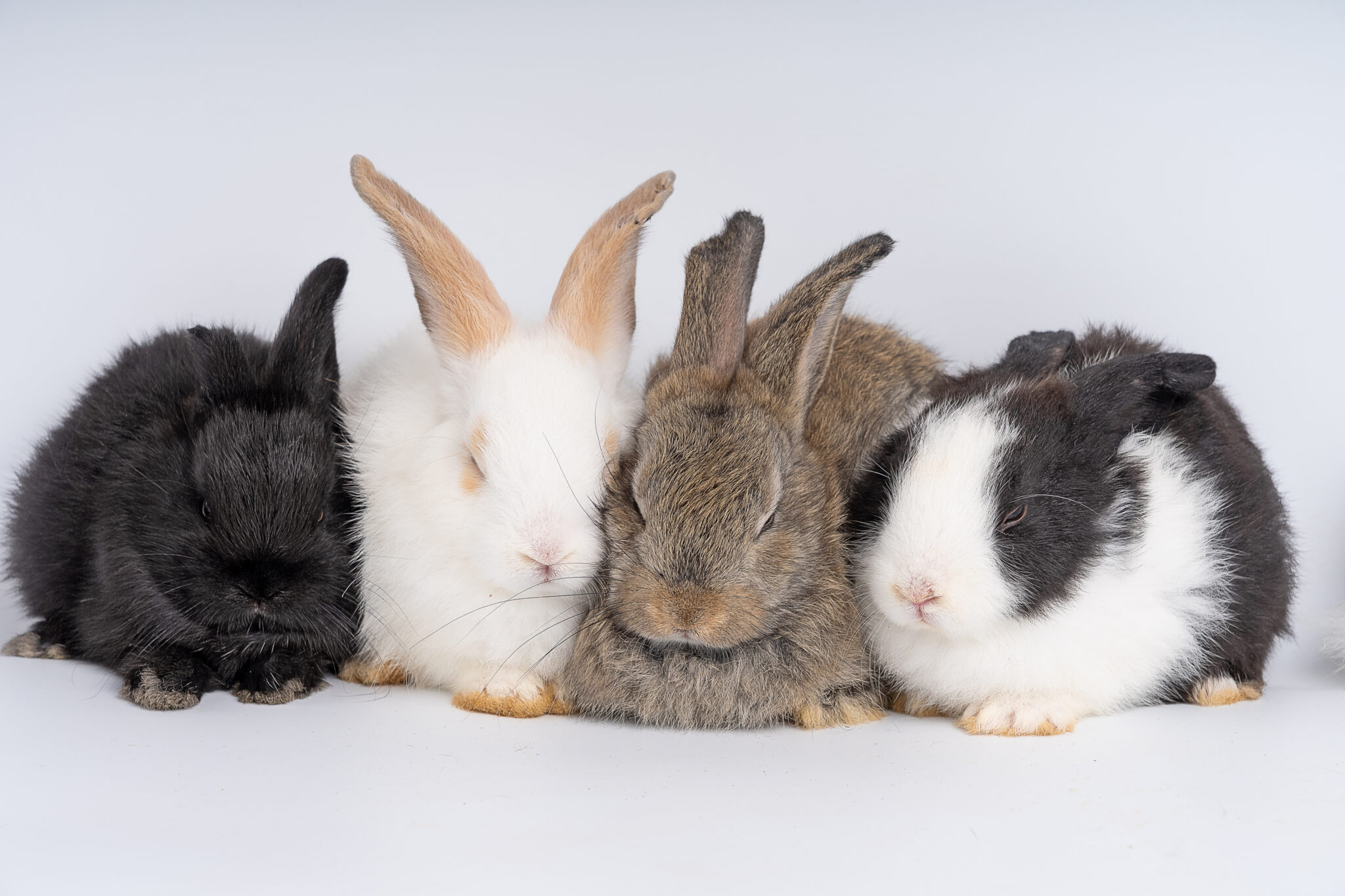Have you ever wondered how rabbits sleep? If you're a bunny owner or just curious about these adorable creatures, you're in the right place. Rabbits have unique sleeping habits that might surprise you. From their preferred sleep positions to understanding their sleep cycles, we'll uncover everything you need to know about bunny bedtime routines. So, let's hop into it and learn how rabbits sleep!
When it comes to rabbits, their sleeping patterns are fascinating. These furry friends have evolved to be alert even during their sleep, which is why their habits differ from other animals. Understanding how rabbits sleep can help you provide a better environment for your pet bunny. Plus, who wouldn't want to know more about their adorable quirks?
Whether you're a first-time rabbit owner or simply curious about these cute critters, this article will answer all your questions about rabbit sleep. From their favorite positions to the best sleeping environment, we'll cover it all. Let's dive in and discover the secrets behind bunny bedtime!
- Michael Polansky Age Unveiling The Life And Legacy Of A Remarkable Figure
- Tan Chuan Jin Divorce The Untold Story Behind The Headlines
Why Understanding Rabbit Sleep Matters
Knowing how rabbits sleep isn't just fun trivia. It's essential for their well-being. Rabbits are prey animals, which means their sleep habits are tied to survival instincts. By understanding their sleep patterns, you can ensure your bunny feels safe and secure in its environment. This leads to happier, healthier rabbits.
The Science Behind Rabbit Sleep
Rabbit sleep is a blend of rest and alertness. Unlike humans who experience deep REM sleep, rabbits remain partially awake during their sleep cycles. This is due to their evolutionary need to stay vigilant against predators. Let's break it down:
- Rabbits sleep in short bursts, typically lasting 10-15 minutes.
- They alternate between light sleep and periods of rest.
- Even when asleep, rabbits can respond quickly to potential threats.
This unique sleep pattern allows rabbits to rest while staying prepared to flee if danger arises. It's one of the many ways these animals have adapted to survive in the wild.
- Charles Manson Jr The Dark Legacy And Untold Story
- Unlocking The Secrets Of Uk Somali Telegram Your Ultimate Guide
How Do Rabbits Sleep: Key Positions
Rabbits have some pretty interesting sleep positions. Their posture can tell you a lot about how comfortable and relaxed they feel. Here are some common sleeping positions:
1. Loaf Position
This is one of the most popular sleep positions for rabbits. They tuck their legs underneath their body, forming a compact "loaf" shape. This position helps them conserve heat and stay cozy. It's also a sign that your bunny feels safe and secure.
2. Stretch Out
When rabbits stretch out flat on their bellies, it's a clear indication that they're super relaxed. This position exposes their vulnerable parts, so it only happens when they trust their surroundings. If you see your bunny doing this, it's a good sign they're happy and content.
3. Side Sleeping
Another sign of trust is when rabbits sleep on their sides. They may even roll onto their backs, exposing their bellies. This position is rare and usually seen in domestic rabbits who feel completely safe with their owners.
Factors Affecting Rabbit Sleep
Several factors influence how rabbits sleep. From environmental conditions to health issues, these elements play a crucial role in their sleep quality. Let's explore them:
1. Environment
A rabbit's sleeping environment should mimic its natural habitat as much as possible. This includes:
- A quiet and calm space
- A comfortable nest or bedding
- Consistent temperature and lighting
Creating the right environment helps your bunny feel secure and encourages restful sleep.
2. Health
Poor health can disrupt a rabbit's sleep. Issues like dental problems, arthritis, or digestive discomfort can make it difficult for them to relax. Regular vet check-ups and a balanced diet are essential for maintaining their overall well-being.
The Importance of Sleep for Rabbits
Sleep is vital for rabbits, just as it is for humans. During sleep, their bodies repair tissues, boost immunity, and process information. Without adequate rest, rabbits may experience:
- Increased stress levels
- Compromised immune systems
- Behavioral changes
Ensuring your rabbit gets enough sleep is key to maintaining its physical and mental health. By understanding their sleep needs, you can help them thrive.
Creating the Perfect Sleep Environment
Now that you know how rabbits sleep, let's talk about setting up the ideal sleeping area. Here are some tips:
1. Choose the Right Bedding
Comfortable bedding is essential for a good night's sleep. Options like hay, fleece, or soft blankets work well. Avoid materials that could harm your rabbit if ingested.
2. Provide a Cozy Nest
Rabbits love having a designated space to retreat to. A small box or hideout filled with soft bedding can make them feel safe and secure.
3. Maintain Consistent Lighting
Rabbits are crepuscular, meaning they're most active during dawn and dusk. Mimicking this lighting pattern in their environment can help regulate their sleep-wake cycles.
Common Myths About Rabbit Sleep
There are several misconceptions about how rabbits sleep. Let's debunk a few:
1. Rabbits Don't Need Much Sleep
While rabbits don't sleep for long stretches like humans, they still require several hours of rest throughout the day. Their short sleep cycles add up to a significant amount of downtime.
2. Rabbits Sleep with Their Eyes Open
Some rabbits do sleep with their eyes partially open, but not all of them. This behavior is more common in wild rabbits, who need to stay alert for predators.
3. Rabbits Only Sleep at Night
Rabbits are crepuscular, meaning they're most active during twilight hours. They nap throughout the day and night, adjusting their schedule based on their environment.
Fun Facts About Rabbit Sleep
Here are some interesting tidbits about rabbit sleep:
- Rabbits can sleep for up to 8 hours a day in short bursts.
- They often twitch their noses and ears while sleeping, a sign of their heightened awareness.
- Domestic rabbits tend to sleep more than wild ones due to the lack of predators.
These fun facts highlight just how unique rabbit sleep habits are. Learning about them can deepen your appreciation for these fascinating creatures.
Expert Tips for Better Rabbit Sleep
As a rabbit owner, there are several things you can do to improve your bunny's sleep quality:
1. Reduce Stress
A stress-free environment is crucial for restful sleep. Avoid loud noises, sudden movements, and other potential stressors around your rabbit's sleeping area.
2. Provide Companionship
Rabbits are social animals and often sleep better when they have a companion. If you have multiple rabbits, ensure they have enough space to sleep together comfortably.
3. Stick to a Routine
Establishing a consistent daily routine helps regulate your rabbit's sleep-wake cycle. Feed them, play with them, and put them to bed at the same time each day.
Conclusion: Sleep Well, Bunny
In conclusion, understanding how rabbits sleep is vital for their health and happiness. From their unique sleep positions to the importance of a safe environment, every aspect of their bedtime routine matters. By providing the right conditions and addressing any potential issues, you can ensure your bunny gets the rest it needs.
So, what are you waiting for? Take a moment to evaluate your rabbit's sleeping setup and make any necessary adjustments. And don't forget to share this article with fellow rabbit enthusiasts! Together, we can help all bunnies sleep soundly.
Table of Contents
- Why Understanding Rabbit Sleep Matters
- The Science Behind Rabbit Sleep
- How Do Rabbits Sleep: Key Positions
- Factors Affecting Rabbit Sleep
- The Importance of Sleep for Rabbits
- Creating the Perfect Sleep Environment
- Common Myths About Rabbit Sleep
- Fun Facts About Rabbit Sleep
- Expert Tips for Better Rabbit Sleep
- Conclusion: Sleep Well, Bunny


